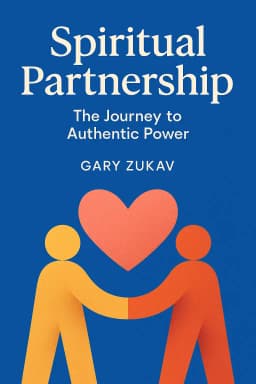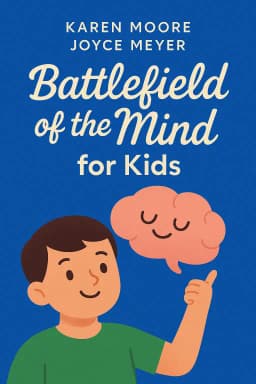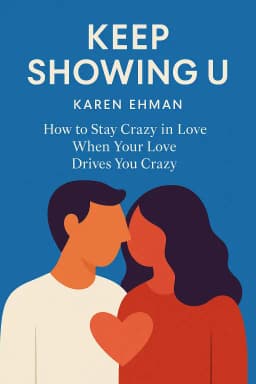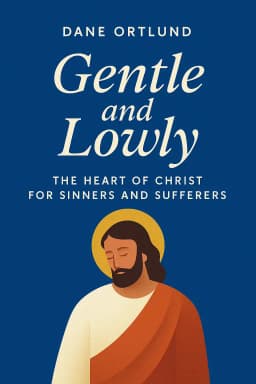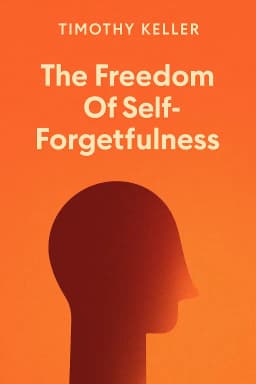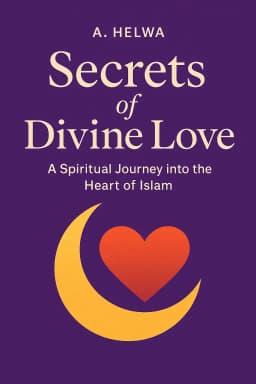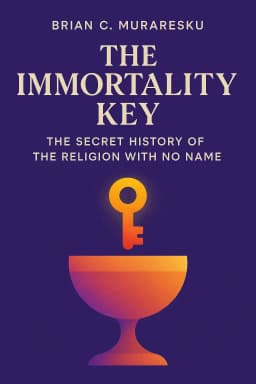
The First Supper's Secret
Golden Hook & Introduction
SECTION
Daniel: Alright, Sophia, let's play a game. When you think of the origins of Christianity, what's the first image that comes to mind? Sophia: Oh, that's easy. I picture solemn figures in robes, maybe some dusty scrolls, bread and wine in a dimly lit room. It all feels very... pious and serene. Daniel: Exactly. The standard, sanitized version we all learned. What if I told you the real story might be a lot wilder? Imagine a secret history involving a psychedelic beer, powerful pagan priestesses, and a ritual that directly connects the spiritual bedrock of ancient Greece to the birth of Christianity. Sophia: A psychedelic beer at the root of Western religion? Okay, that is not what I was picturing. That sounds less like a church service and more like a clandestine festival. Daniel: You're not far off! That's the explosive premise of The Immortality Key: The Secret History of the Religion with No Name by Brian C. Muraresku. And what's wild is that Muraresku isn't some fringe theorist writing from his basement. He's a Georgetown-trained lawyer and a classics scholar from Brown University who spent over a decade meticulously building this case. Sophia: A lawyer and a classics scholar? That's an unusual combination. Daniel: It is. He approached it like a legal brief, hunting for evidence. He spent 12 years on this, digging through ancient texts, collaborating with archaeologists, and even getting access to hidden collections in the Louvre and secret Vatican archives. Sophia: A lawyer digging in the Vatican for psychedelic clues? Okay, you have my full attention. Where does an investigation like that even begin?
The Psychedelic Roots of Western Spirituality
SECTION
Daniel: It begins in Ancient Greece, at a place called Eleusis. For nearly two thousand years, from 1500 BC to the 4th century AD, Eleusis was the most important spiritual center in the Western world. Sophia: Two thousand years? That's an incredibly long run for any institution. What was happening there that was so compelling? Daniel: That’s the mystery. The greatest minds of the ancient world—philosophers like Plato, orators like Cicero, even Roman emperors like Marcus Aurelius—made a pilgrimage to Eleusis to be initiated into its secret rites. They were forbidden from ever speaking about what they experienced, under penalty of death. Sophia: Death penalty for revealing a secret? The stakes were incredibly high. What was the promise? What did they get for all that risk and secrecy? Daniel: The promise was nothing less than immortality. Not necessarily living forever, but losing the fear of death. The poet Pindar, an initiate, wrote, "Blessed is he who has seen these things before he goes beneath the hollow earth; for he understands the end of mortal life, and the beginning of a new life given of God." They saw something that fundamentally changed their relationship with mortality. Sophia: Wow. So the million-dollar question is: what did they see? What happened inside that sanctuary? Daniel: This is where Muraresku picks up a controversial thread from the 1970s. The theory, first proposed by a strange trio—a banker named Gordon Wasson, the Swiss chemist who discovered LSD, Albert Hofmann, and a Boston University classicist named Carl Ruck—was that the initiates drank a special potion. It was called the kukeon. Sophia: The kukeon. And let me guess, it wasn't just barley water. Daniel: Exactly. The Hymn to Demeter, one of our oldest texts describing the ritual, says the kukeon was made of barley, water, and pennyroyal mint. But Wasson, Hofmann, and Ruck argued that this wasn't just any barley. They proposed it was barley infected with a fungus called ergot. Sophia: Hold on, ergot. I've heard of that. Isn't that a dangerous poison? It causes hallucinations, but also gangrene and convulsions. It's not exactly a spiritual sacrament. Daniel: You're absolutely right. In its raw form, it's deadly. But Albert Hofmann, the LSD guy, knew that ergot contains a whole family of chemical compounds called alkaloids. Some are toxic, but others are psychoactive. He theorized that the ancient Greeks, through generations of trial and error, could have figured out how to perform a simple, cold-water filtration to isolate the non-toxic, psychoactive compounds—specifically LSA, a close cousin of LSD. Sophia: So they were essentially brewing a primitive form of LSD. A psychedelic beer. Daniel: That's the theory. They were creating a visionary sacrament that could reliably produce what modern researchers call a "mystical experience." This wasn't just getting high; it was a carefully controlled ritual designed to induce a profound psychological and spiritual transformation. Sophia: Okay, that's a mind-blowing idea. If the evidence is there, why isn't this common knowledge? Why isn't this in every history textbook? Daniel: Because the theory was met with absolute hostility. Muraresku tells the story of Carl Ruck, the classicist on the team. After their book, The Road to Eleusis, was published in 1978, Ruck was essentially blacklisted in his own department. Sophia: What happened? Daniel: The university president at the time, a staunch conservative, saw the theory as an attack on the "rational Greeks" and, by extension, the foundations of Western civilization. It was also the height of Nixon's War on Drugs, when psychedelics were declared "public enemy number one." The idea that the revered founders of our culture were engaged in psychedelic rituals was just too much. Ruck was demoted, isolated from his students, and became an academic pariah for decades. Sophia: Wow. So he paid a real professional price for this idea. It shows how threatening this concept was, and probably still is, to the established narrative. The idea that our spiritual origins might be chemical, not just philosophical, is deeply unsettling for some. Daniel: Deeply. And that's just the first part of the mystery. The real bombshell in Muraresku's book is where this tradition went next.
The 'Pagan Continuity' Hypothesis
SECTION
Sophia: I was just thinking that. Okay, so the Greeks might have had a psychedelic ritual at Eleusis. It's a fascinating and controversial theory. But it still feels like a world away from Christianity. How on earth does Muraresku make that connection? Daniel: He argues that this "Religion with No Name"—this ancient, experiential, visionary tradition—didn't just vanish when the Romans destroyed Eleusis in 395 AD. He proposes what's called the "Pagan Continuity" hypothesis: that the tradition went underground and was absorbed by the earliest, Greek-speaking Christian communities. Sophia: You're saying the first Christians might have inherited this practice? That the Eucharist, the central ritual of Christianity, could have been... psychedelic? Daniel: That's the core of his argument. He points out that for the first thousand years of Christianity, the Eucharist wasn't a wafer. It was bread mixed with wine. And in the ancient world, wine was almost never drunk straight. It was a vehicle, a base that was always mixed with other things—herbs, spices, and, Muraresku argues, potentially psychoactive plants. Sophia: So the wine itself could have been the new kukeon. Daniel: Precisely. He presents archaeological evidence from sites across the Greco-Roman world where chemists have found traces of psychoactive ingredients—like opium, cannabis, and henbane—mixed into ancient wine vessels. The practice of creating "spiked wine" was common. Muraresku's question is: why would the early Christians, who came directly from this culture, be the only ones drinking their wine plain? Sophia: That's a provocative question. It reframes the Eucharist from a purely symbolic act to a potentially pharmacological one. But is there any evidence beyond just the possibility? Daniel: This is where he brings in the modern science to make the ancient experience tangible. He tells the story of Dinah Bazer, an atheist from New York who was struggling with crippling anxiety after surviving cancer. She enrolled in a psilocybin study at NYU. Sophia: Right, psilocybin, the compound in magic mushrooms. What happened to her? Daniel: Under the influence of a single, controlled dose, she had a vision. She saw her fear as a "big, black lump" under her rib cage, and she screamed at it to get out. And it did. Then, she describes being "bathed in God's love." She, an atheist, said she felt an overwhelming sense of connection, of belonging, and that she understood that "birth and death actually don't have any meaning." She said it was a state of "always being." Her fear of death completely vanished. Sophia: Wow. So Muraresku is arguing that what Dinah experienced with modern science is what the earliest Christians might have experienced with their communion wine? A direct, visionary encounter that made them feel immortal? Daniel: Exactly. It connects directly back to that ancient Greek saying found on a monastery wall: "If you die before you die, you won’t die when you die." This "ego death" experience, whether from psilocybin or a spiked Eucharist, was the key. It wasn't about belief or faith in a doctrine; it was about a direct, personal, and repeatable experience of the divine. Sophia: That is a radical rethinking of faith. It shifts the entire foundation. So what happened? If this was the original practice, a practice that powerful, why did it disappear? Why are we left with just a symbol? Daniel: Muraresku argues it was systematically suppressed. As the Christian church became more centralized and powerful under the Roman Empire, it shifted its focus from direct, personal experience—which is hard to control—to a system of top-down authority, dogma, and belief. A priest can't control what you see when you have a vision. But he can control the interpretation of a sacred text. Sophia: So they stamped out the mystics. Daniel: They stamped out the mystics, the Gnostics, and especially the prominent role of women, who were often the leaders and brewers in these early, nature-based cults. The Church essentially declared war on this "pagan" inheritance, culminating in events like the destruction of the Library of Alexandria, wiping out centuries of ancient knowledge. The original, experiential religion was replaced by an institutional one.
Synthesis & Takeaways
SECTION
Sophia: It's incredible to think about. You have this ancient, often female-led, nature-based tradition of direct, visionary experience at Eleusis. And the argument is that this "Religion with No Name" didn't really die; it just went undercover, shaping the very beginnings of Christianity before being methodically erased from history. Daniel: That's the journey the book takes you on. It's essentially a detective story, an archaeological search for a lost spiritual technology. Muraresku is trying to piece together the fragments of a history that was deliberately buried. And the reception has been just as polarizing as it was for Carl Ruck back in the 70s. It's a bestseller, but critics are deeply divided. Some praise the meticulous research, while others argue it's too speculative, a kind of Da Vinci Code for the psychedelic set. Sophia: I can see why. It challenges the very foundation of Western culture. It suggests that our journey towards abstract, doctrinal religion involved a great forgetting. We traded a direct, felt experience of the divine for a symbolic one, administered by an institution. Daniel: And what's fascinating is how this ancient history is becoming incredibly relevant right now. You have the modern psychedelic renaissance, with institutions like Johns Hopkins and NYU running these clinical trials. They're essentially rediscovering what Dinah Bazer experienced—a scientifically-validated mystical experience that can alleviate existential dread. Sophia: It’s like we’re reverse-engineering the Eleusinian Mysteries in a lab. Daniel: In a way, yes. Albert Hofmann, the man who discovered LSD, wrote near the end of his life that our "alienation from nature" is the greatest tragedy of our time, and the reason for our ecological crisis. He believed psychedelics could be the catalyst to help us rediscover that sense of connection. Muraresku's book suggests this isn't a new idea, but a very, very old one that we're finally ready to unearth. Sophia: It really makes you wonder what was lost. This book definitely challenges you to rethink everything you thought you knew about history, faith, and consciousness. It's a truly provocative read. We'd love to hear what you all think. What do you make of this hidden history? Find us on our social channels and let's talk about it. Daniel: This is Aibrary, signing off.
